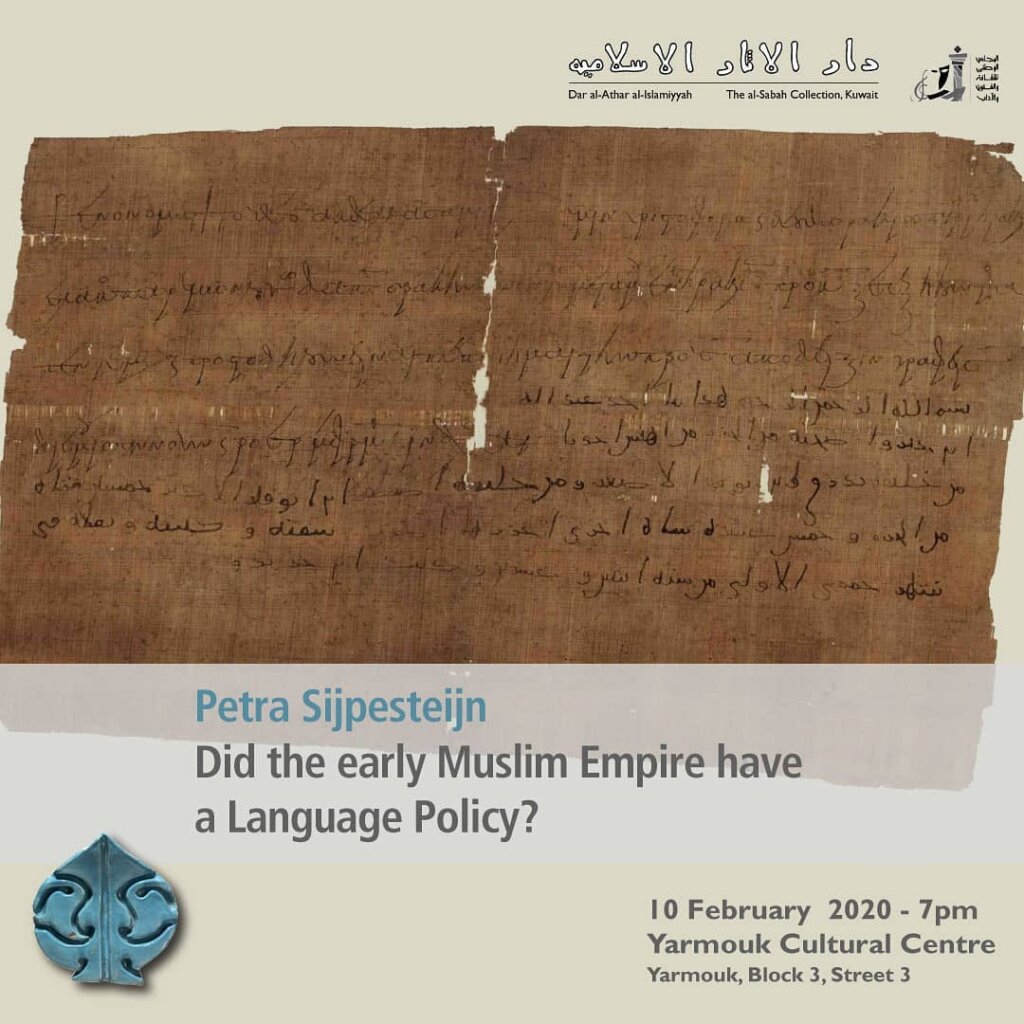Petra Sijpesteijn
Dr Petra Sijpesteijn is professor of Arabic. Her research concentrates on recovering the experiences of Muslims and non-Muslims living under Islamic rule, using the vast stores of radically under-used documents surviving from the early Islamic world. Starting in 2017, she manages an international research project entitled “Embedding Conquest: Naturalising Muslim Rule in the Early Islamic Empire (600-1000)”, funded by the European Research Council. Since 2014, she has also been director of the Leiden University Centre for the Study of Islam (LUCIS).
Did the Early Muslim Empire have a Language Policy?
After the establishment of the Muslim Empire as a result of the great Arab conquests of the mid-seventh century, the Arabs combined administrative expertise they encountered in the conquered areas and added their own practices as well. The Arab chanceries produced documents in multiple languages: Arabic, Greek, Coptic, Soghdian, and Pahlavi for several centuries after the conquests. How does this relate to the famous decision by caliphal decree to switch in the official administration to Arabic only dated to around 700? In this lecture I will present documents produced by chanceries to discuss what language policy the Muslim empire followed. I will also suggest a different interpretation for the literary reports attributed to the famous caliph ‘Abd al-Malik or one of his successors.
